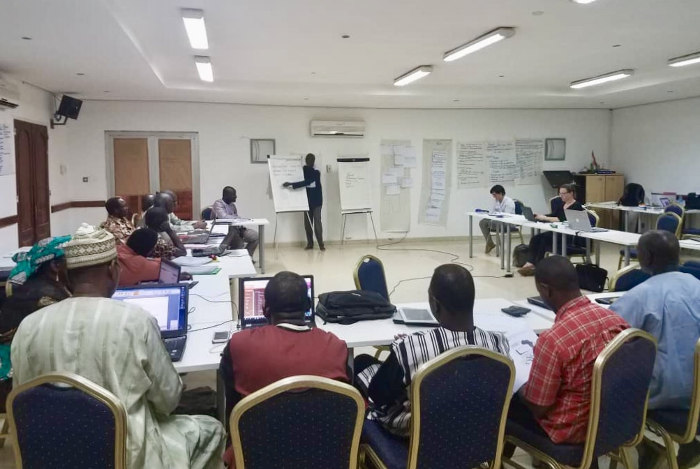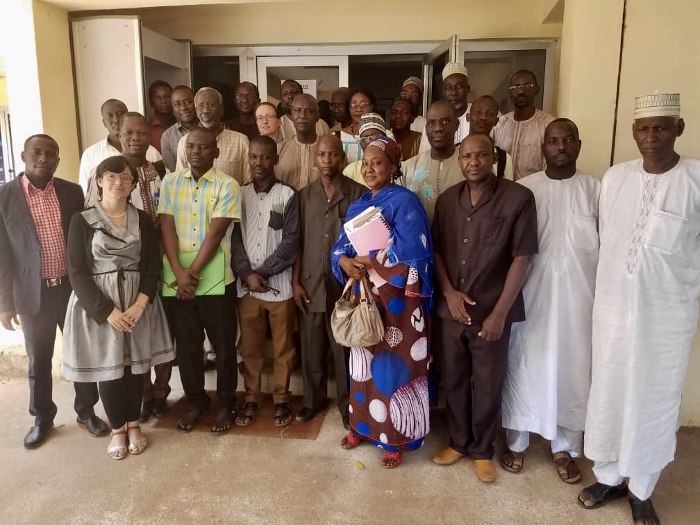
In the framework of its collaboration with UNESCO, Arigatou International – Geneva lead a training workshop on how to integrate transformative pedagogies into education systems as a tool for promoting peacebuilding, resilience and the prevention of violent extremism.
The workshop, which was organized from 6 to 10 May 2019, by UNESCO’s Multisectoral Regional Office for West Africa (Sahel) and the “Institut de la Francophonie pour l’éducation et la formation” took place in Niamey, Niger, bringing together representatives of the Ministries of Primary and Secondary Education of Burkina Faso, Mali, Niger and Senegal.
The main objective of the workshop was to provide guidance for the contextualization of the forthcoming “Teacher’s Guide on Youth Empowerment for Resilience, Peacebuilding and the Prevention of Violent Extremism through Education in the Sahel” to countries’ respective contexts. The workshop and guide are part of the UNESCO International Institute for Capacity Building in Africa (IICBA) project “Youth Empowerment for Peace, Resilience and Prevention of Violent Extremism in Sahel Countries through Teacher Development,” supported by the Government of Japan, and of which, Arigatou International – Geneva is a technical partner, contributing with its knowledge and expertise on education for peacebuilding, as well as its methodology on ethics education.
Transformative pedagogy is a process that, if properly conducted, leads to “a change in behavior”, according to Ms. Zeinabou Abani from the Directorate of Initial and Continuing Education of the Ministry of Primary Education, Literacy, National Language Promotion and Civic Education of Niger. For her, “It is a question of the teacher establishing dialogue and establishing skills in the student that will enable him/her to become aware of a problem, to develop an instinct for questioning, to exchange with his/her entourage to find lasting solutions, and to use the same approach each time he/she faces a problem that concerns him/her or his/her community”.
The next step will be for the national teams to adapt the guide to the national context before preparing a training of trainers who will, in turn, train teachers in selected schools.
